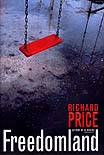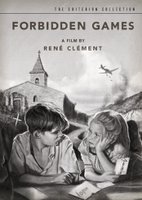One thing you come to take for granted living in New Orleans is how readily it forgives eccentricity. I never thought of myself as other than a fairly normal person. Sure, I have this predeliction for writing dark stories, and I like watching dark movies, and sometimes my humor runs to the morbid, but . . . hey, that's normal, right?
For many of us in the genre, of course, it is. By New Orleans standards, it was certainly too tame a character trait to qualify as weird, or even interesting.
But standards are different in Asheville. When people I work with found out that I write and have published a few stories, a few were eager to read some. So I circulated a copy of "You Go Where It Takes You," and the reaction has been largely one of dismay. One person has asked me why I have custody of my daughter if I hate her that much. Another has stopped talking to me altogether.
At first I was stunned by this reaction, although now I see I shouldn't have been taken by surprise. Of course you always know that there are going to be people who can't separate the author from the characters, but it's strange to actually encounter it for the first time. It certainly convinces me that I'll never give any of them a copy of "S.S."
"S.S." was published in March of 2005 by The 3rd Alternative. That probably mean that the few of you who come over here have not read it. It's about Nick, a fifteen year old boy, living at home with a mother rapidly descending into insanity, who is seduced by the white nationalist movement. Since the story is told from Nick's point of view, it is also a sympathetic portrayal. Obviously, any confusion between character and author could lead to some trouble.
Many years ago, my brother spent some time in a white supremacist group. He has long since abandoned it, as well as the belief system that accompanied it (by the way, I asked him if I could write about this, and he's given me his blessing). At the time, though, it was scary for me and our mother; very likely for him, too. He wore the persona like a coat, and it seemed to change him completely. I remember him bringing friends over to the house: big guys, shaved heads, radiating hostility. I was never afraid of my brother -- he was, after all, my four years my junior, and a lifetime of exploiting that fact had deluded me into thinking that I would
always be able to squash him into submission if I had to -- but I was afraid of his friends. They looked like they could hurt people if they wanted to. And they looked like they wanted to.
This was right around the time, too, when Geraldo Rivera had the neo-Nazis on his show, and one of them broke his nose with a chair. They were getting a lot of press -- at least it seemed so to me. And the public reaction was, of course, one of moral outrage. And that's the proper reaction to any belief system that inspires violence to a people based on ethnicity, religion, what have you. But that outrage is also a warping factor in and of itself, and all to often what happens is that the members of these groups are painted as two-dimensional monsters. There's no substance to them; no gray. (We're seeing this now with "evil," "death-worshiping" Islamic radicals.)
I probably would have leaped eagerly into that reductivist mindset if my brother hadn't been a part of that scene. And I saw the complexities: I heard the racism, saw the burgeoning urge to violence, watched the contempt grow like a cancer. But I saw that same kid (and many of them are just kids) come home at night and play with his G.I. Joe action figures in his bedroom. You know, voices, sound effects, everything. And that created such a dissonance; it was hard to get my mind around it. But it convinced me that he was still just a kid, and that there was hope for him. And that anyone who said he was evil was not making an effort to understand the roots of the problem. Calling it evil wasn't going to solve anything.
It's a liberal's disease, I know: try to understand the villain. Find his inner child. Discover why he is who he is. But I really believe in that. And because of my brother, I know there is a lot of validity to that approach.
So, years later, thinking back on all of that, I decided to write a story about a kid who gets caught up in the movement. It's not my brother's story. Our mother is not crazy, and our father did and continues to maintain an active presence in our lives. But there are cosmetic similarities: a growing sense of alienation and worthlessness; a feeling of abandonment; and a desperate need
to
fit somewhere.
A lot of people call horror fiction a
moral fiction. You know, drugs and sex will get you decapitated. For a long time I scoffed at that notion, and when I wrote "You Go Where It Takes You" I thought I was rebelling against it. But I understand now, especially in light of "S.S.", that I am very much preoccupied with morality, and that those stories at least can fairly be called moral fictions. What I do rebel against, however, is the notion that horror fiction should be an
instructive moral fiction. I think all good fiction should ask questions. Beware fiction that offers solutions; beware fiction that offers catharsis. You're being drugged.
I wrote "S.S." to get readers to see the world through Nick's eyes. It was an uncomfortable story to write, and I hope it's an uncomfortable story to read. There are no apologies offered for the epithets he uses, or the actions he takes, because he does not feel they're wrong. I don't celebrate Nick; I don't really like him, even. But I
get the kid. I understand him.
If this story ever gets a wider circulation, and people confuse me with the protagonist, the way they sometimes do with Toni, I understand it might cause me some trouble. Especially if people find out about my brother's history and decide to leap to some handy conclusions. But I like fiction that digs into ugly places; I like fiction that places the world in an unusual and disturbing perspective. I think that if horror fiction is truly an exploration into morality, then this is one of its duties. Maybe its most important duty.
That's why I wrote "S.S."
But I'm still too chicken to bring it into work.

 Another recommendation for you: a French film, circa 1952, by Rene Clement called Forbidden Games. It's about a little girl whose parents are killed during an airstrike while fleeing Paris. She is taken in by a rural family, and befriends their youngest son. The two of them become obsessed with the trappings of death and mourning, and take to stealing crucifixes and constructing their own little cemetery in a nearby barn. Heartbreaking; the girl is nothing short of remarkable. The last scene literally had me crying.
Another recommendation for you: a French film, circa 1952, by Rene Clement called Forbidden Games. It's about a little girl whose parents are killed during an airstrike while fleeing Paris. She is taken in by a rural family, and befriends their youngest son. The two of them become obsessed with the trappings of death and mourning, and take to stealing crucifixes and constructing their own little cemetery in a nearby barn. Heartbreaking; the girl is nothing short of remarkable. The last scene literally had me crying.
